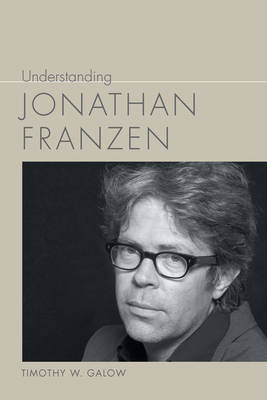
- Retrait gratuit dans votre magasin Club
- 7.000.000 titres dans notre catalogue
- Payer en toute sécurité
- Toujours un magasin près de chez vous
- Retrait gratuit dans votre magasin Club
- 7.000.0000 titres dans notre catalogue
- Payer en toute sécurité
- Toujours un magasin près de chez vous
Description
The first comprehensive study to address Franzen's work to date, including his latest novel, Crossroads
Jonathan Franzen--novelist and essayist--is a critical darling, commercial success, and magnet for controversy. His career took off with the publication of The Corrections (2000), which won a National Book Award and was nominated for the Pulitzer Prize. His follow-up, Freedom (2009), received so much attention that it started a debate over the politics of critical attention. Love him or hate him, Franzen has proven to be a crucial figure in twenty-first century American letters, and the publication of each new novel has been a major literary event.
In Understanding Jonathan Franzen, Timothy W. Galow studies Franzen's first five novels and surveys his most recent, Crossroads, which was published to much fanfare in 2021. He traces Franzen's work from its roots in late twentieth-century literary theory and experimental postmodernism through the socially conscious family novels for which the author is best known. This careful analysis provides a new lens for viewing each of the works and demonstrates why Franzen's stories of (white, bourgeois) American life have inspired and provoked readers for over two decades.
Spécifications
Parties prenantes
- Auteur(s) :
- Editeur:
Contenu
- Nombre de pages :
- 164
- Langue:
- Anglais
- Collection :
Caractéristiques
- EAN:
- 9781643363714
- Date de parution :
- 16-02-23
- Format:
- Livre broché
- Format numérique:
- Trade paperback (VS)
- Dimensions :
- 157 mm x 216 mm
- Poids :
- 249 g

Les avis
Nous publions uniquement les avis qui respectent les conditions requises. Consultez nos conditions pour les avis.






